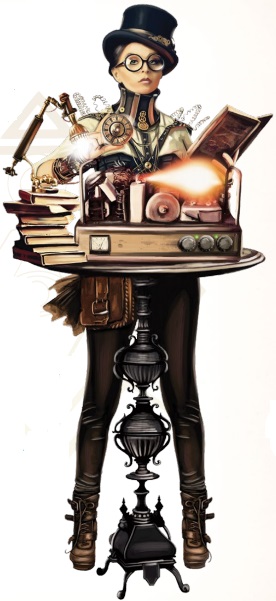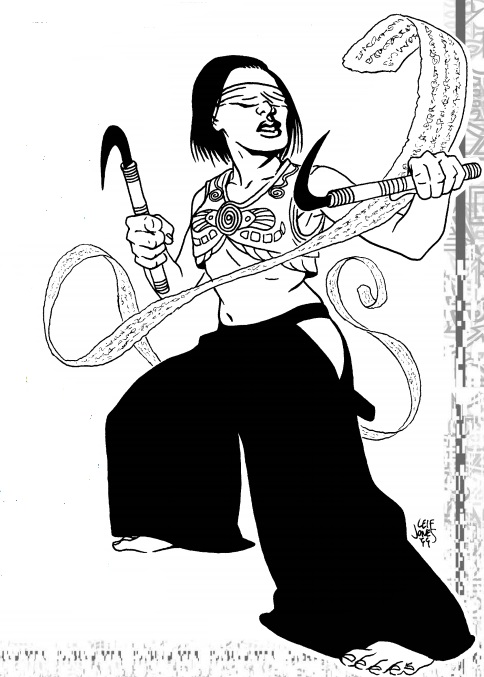

It's something an outsider can aspire to, but it requires commitment and a seriousness of purpose.īut then there's that weird bit about Africans? I get why you'd want to. True understanding would require a whole host of cultural signifiers of the sort accumulated over a lifetime. You can't just jet in to the Himalayas, have a "spiritual experience" and then walk away with mystical powers - it's a religious system that belongs to a particular place and a particular people.

It can be most generously read as a hedge against cultural appropriation. Its heart seems to be in the right place.

For context, the "founding cultures" are China, Japan, Korea, and Tibet (also a bit of India, though that's barely mentioned). African initiates have an easier time with it than European and American newcomers, but the Akashic mindset seems to work best among those raised within its founding cultures. Those who do earn great respect from their Asian Brothers. Although the Tradition now welcomes all cultures into its fold, few Europeans can master the ideals and disciplines of Do. Many eastern Brothers still regard their white counterparts with a mixture of pity and disdain. But then it does this,įew non-Asian mages were initiated into the Brotherhood before 1900. Despite an early misstep with "our mood is one of exotic mystery," Akashic Brotherhood doesn't use the word "oriental" once. It's instructive to compare this book to The Complete Ninja's Handbook, which is going to get published a year later. It's very piously multicultural and in its own blundering way anti-sexist ("brother" is a gender neutral term) and anti-racist, but it's also just completely confident in its own right to carelessly grab whatever it wants from Asian cultures.

I've repeatedly said that Mage: the Ascension here is the most 90s game there is, and this here is a big part of it (the other part is Technocracy as a villain, and the way it casts "the experts have everything under control" as a horror premise). Or, at least, mid-90s White Wolf couldn't. You can have a mature, thoughtful roleplaying game that has interesting things to say about Dharma and the cycle of reincarnation, or you can quote Dr Strange, but you can't do both. Instead, it takes the watered-down "eastern mysticism" of something like Iron Fist at face value. Unfortunately, Akashic Brotherhood doesn't quite have that sense of fun. A modern-day martial arts fantasy setting inspired by comics and Hong Kong cinema would actually be pretty awesome. Not that there's anything wrong with that. There's a sense that the magic of the Akashic Brotherhood is meant to really engage with some serious philosophical and spiritual ideas.Īlso, there are at least seven sections that begin with quotes from comic books. Akashic Brotherhood has a very roundabout, metaphorical way of using language, an artifact, I think, of Mage's growing ambition. At least, that's the impression I get from my limited knowledge. My operating theory, though, is that there was a typo when they added it to their spell check, and so every instance of the word has the same misspelling.Īs a primer for Buddhism, it's not very effective, though. They keep referring to an idea called "Drahma" and I think they mean "Dharma," but I can't entirely be sure because the Akashic Brotherhood's signature martial art/spiritual practice is called "Do," and they are clearly riffing off real terms in East Asian spirituality (though I don't know whether it's "Tao" or "De" that inspired it), and so it's possible that they are just intentionally corrupting words so as to not use sacred ideas to refer to silly game mechanics. I'm not sure there was enough, but for better or worse, this is a book that feels like it took some effort to write. This is a book that really wants to explore the Akashic Brotherhood as "the Buddhist Tradition," and there was clearly some thought and research put into that idea. So Mage is fundamentally a game about religion, but it's also frequently sloppy and careless about how religious ideas are used, but it's also really pretentious (not that we'd know anything about that around here), but it's also tuned in to pop culture, but it's also just totally mired in the chaos of the expansive White Wolf canon. I guess we'll just have to dive in and hope to come out the other side in a reasonably dignified manner. I'm not sure I'm entirely qualified to critique it, but I think I have to, because it's the first book in the line that pulls together all of Mage's disparate threads to become recognizably the game I first encountered in 2001. Akashic Brotherhood is a complicated book.


 0 kommentar(er)
0 kommentar(er)
